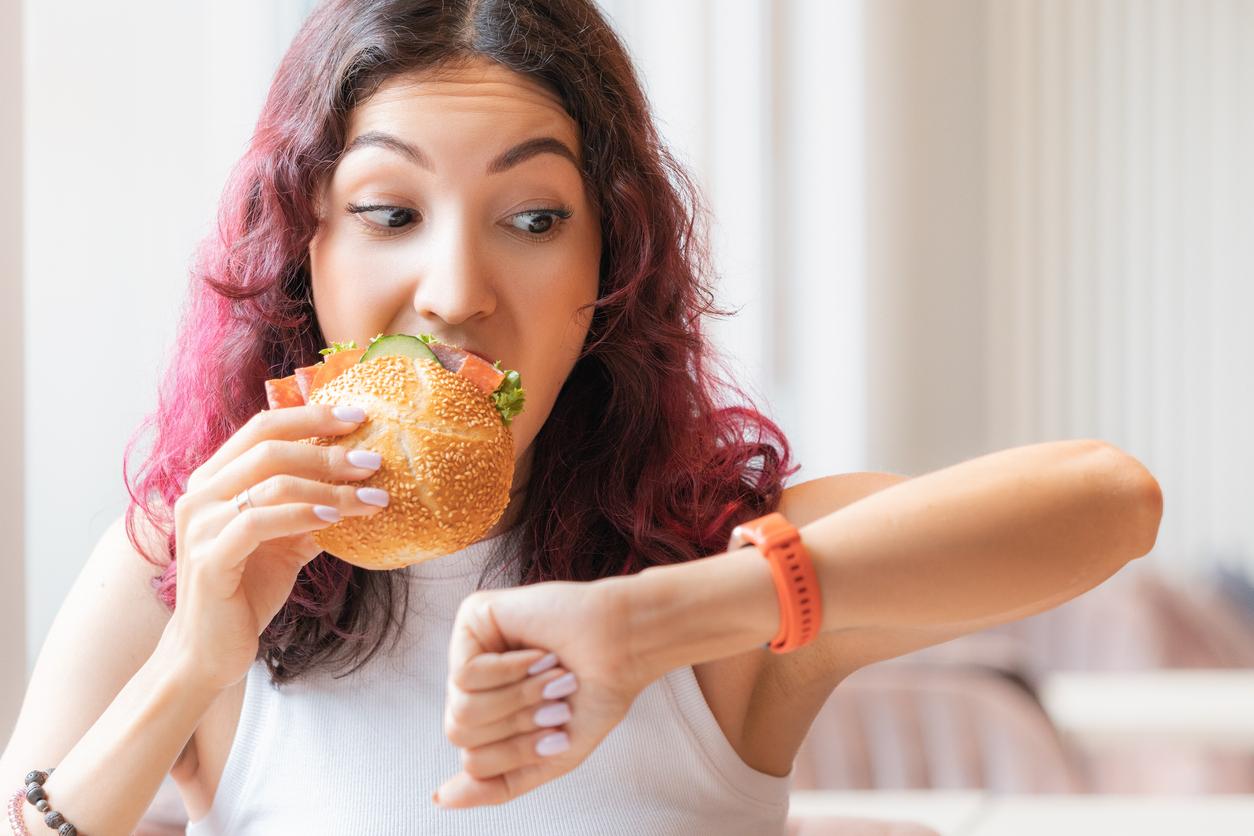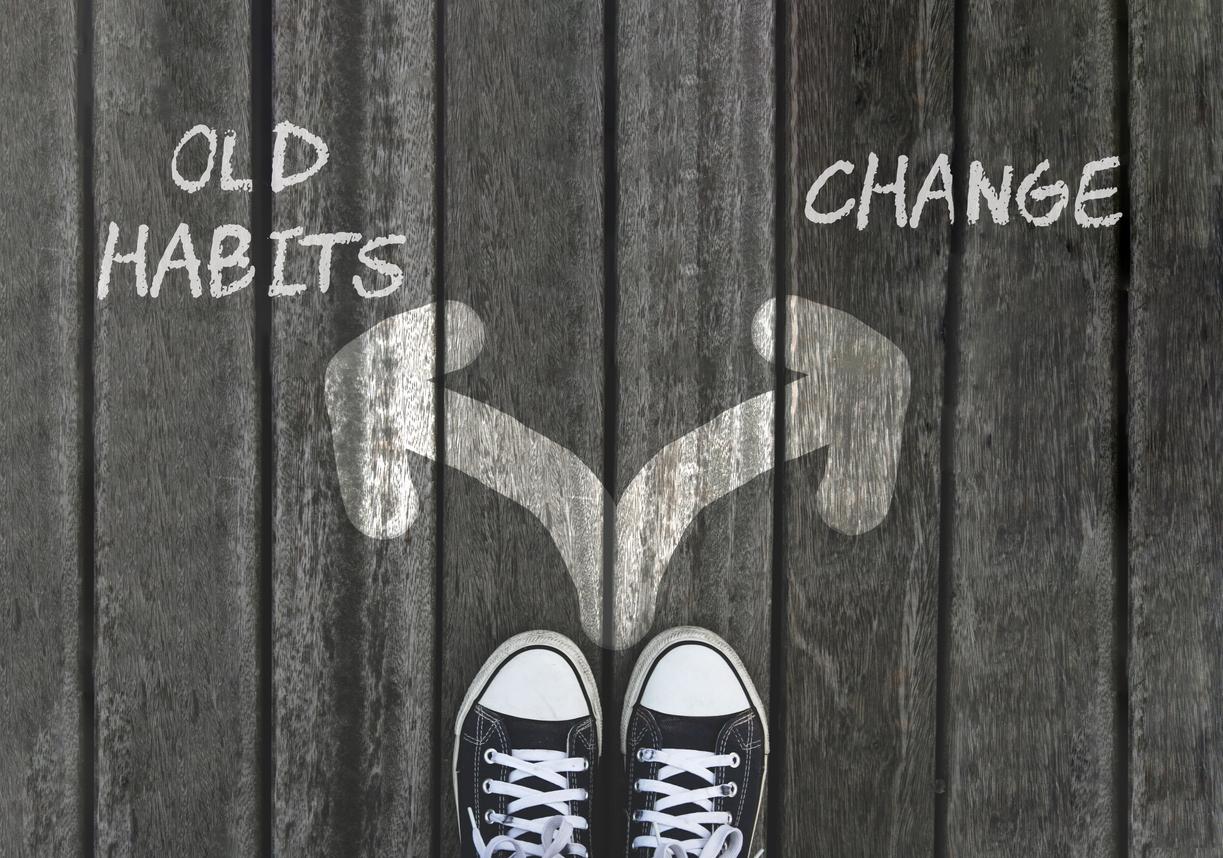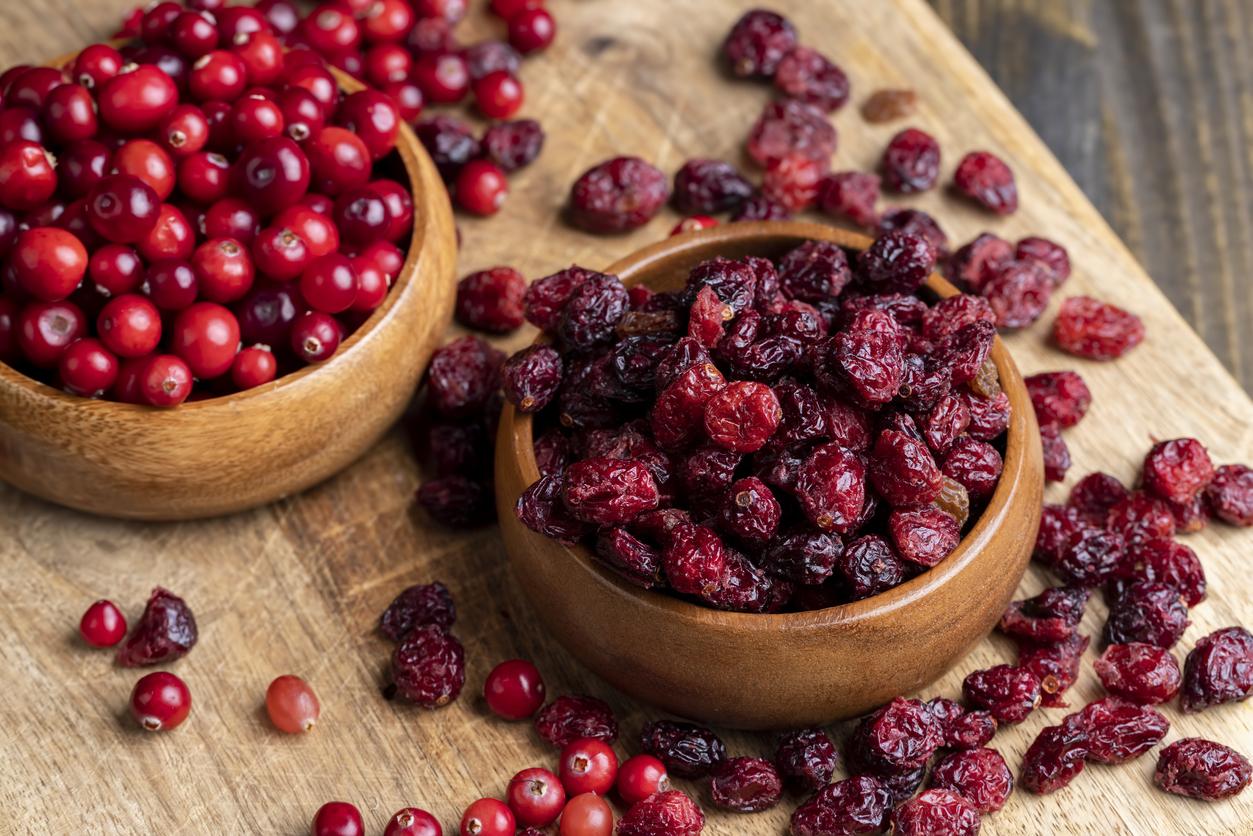Eating slowly is better for your health. To get there, you have to know how to take your time and chew correctly.

- Eating slowly is better for digestion and overall health.
- To successfully slow down, you need to know how to chew, give enough time to meals and drink regularly.
- Eating mindfully also helps you take more time.
Stomach aches, difficulty digesting, disappearance of the feeling of satiety, weight gain: eating too quickly can cause many inconveniences. Food specialists are clear: a meal must be taken slowly. But this can be difficult to achieve. Leslie Heinberg, psychologist at the Cleveland Clinic in the United States, gives his advice on how to achieve this in a article.
To eat for a long time, take your time
His first recommendation is simple: you have to know how to take your time. “We live in a fast-paced world with fast food restaurants on every corner, but these five-minute lunches should be the exception, not the rule.”, she believes. She suggests getting organized so you can carve out time for your lunch break and dinner. By slowing down the rate of absorption of the meal, we enjoy the moment more and allow the body to send satiety signals on time. By eating too quickly, there is a risk of not having the satiety signal and consuming too large quantities. “People should take more than 20 minutes to eat a meal, ideally around 30 minutes“, says Dr. Heinberg. To achieve this, she recommends using a timer or, quite simply, checking the time regularly.
Chewing is essential
Taking your time to eat also means adapting the pace of food absorption. This happens through chewing. The psychologist explains that you need to take enough time to chew each bite before swallowing it. “This means you shouldn’t feel large chunks of food going down your throat.”, she warns. Depending on the type of food, you should chew each mouthful between 15 and 30 times. If it’s complicated, putting your fork on the table after putting the food in your mouth can help.
Diet: drink water to slow down the pace
Dr. Heinberg also emphasizes the importance of drinking water during meals. You have to take a few sips regularly between bites, because “This can encourage much-needed breaks, but it can also help you feel fuller.”. Drinking also helps soften harder foods while chewing.
What is mindful eating?
To slow down the pace when eating, she reminds us that it is important to take your meals in “awareness”. Mindful eating could be defined as being completely focused on eating food. This means limiting distractions like television or phones. “You can practice mindful eating by changing your attitude not only about what you eat, but how you eatsummarizes Dr. Heinberg. (…) Mindful eating also means engaging all your senses – not just the taste of the food, but also focusing on sight, smell, texture, etc.” So it’s also a way to enjoy more!















